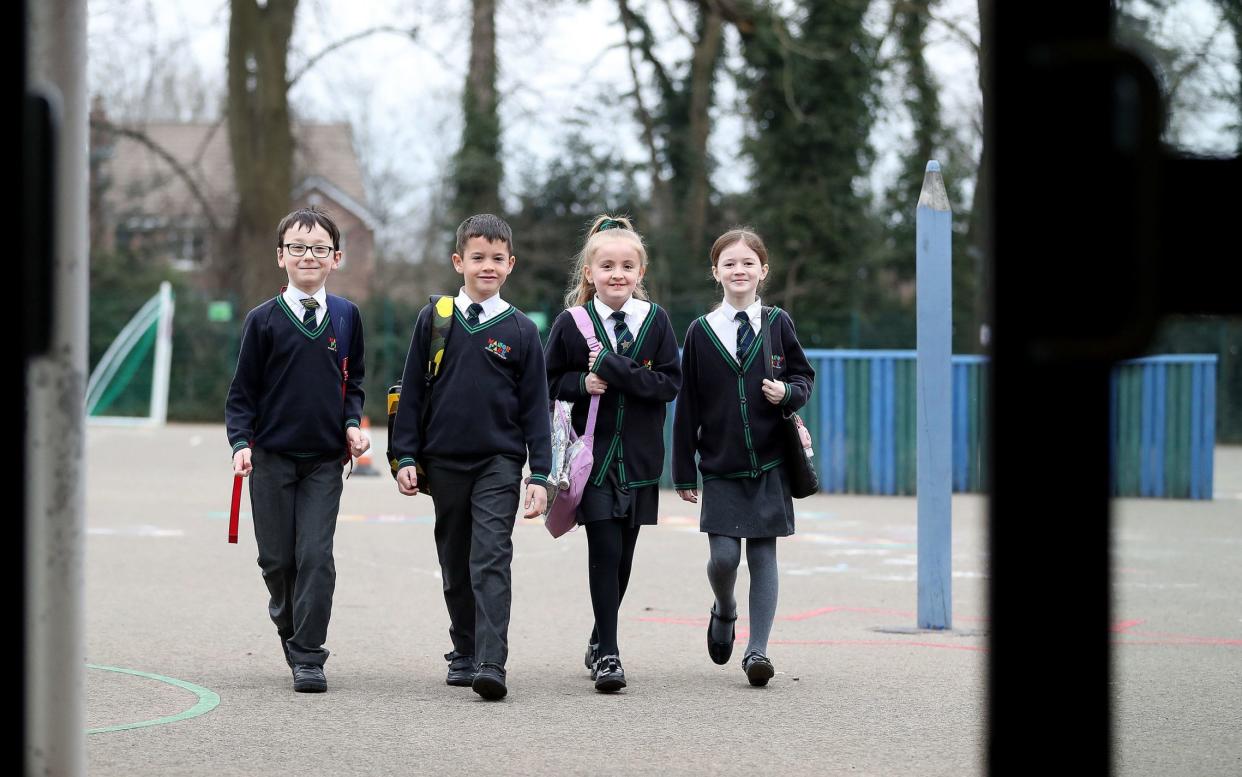Children have lacked 'discipline and order' during lockdown, warns Gavin Williamson


A generation of children have lacked “discipline and order” during lockdown, the Education Secretary has warned as he launches a behaviour crackdown.
The absence of structure for youngsters during several months of school closures will “inevitably” have an impact on their behaviour, according to Gavin Williamson.
Throwing his weight behind a mobile phone ban at schools, he said that some children’s “out of control behaviour” threatens to “destroy” the learning environment for their peers.
His remarks come as the Department for Education (DfE) announces the details of its £10 million “behaviour hub” programme which it says will be up and running in time for the summer term.
Officials have appointed 22 “lead schools” across the country, all of which have strong behaviour policies and receive glowing Ofsted reports.
These schools will be responsible for assisting and advising other struggling schools to improve their discipline regimes, for example, by banning mobile phones and implementing quiet corridors.
The lead schools – which include Bedford Free School, Ashmole Academy in Barnet and Tor View School in Lancashire – have been chosen on the basis that their firm behaviour policies contribute to a rise in students' exam results.

Mr Williamson said he supports headteachers to take any action necessary when faced with persistent bad behaviour including detentions, suspensions or expulsions.
Writing in The Telegraph, he said after a year of pandemic-induced disruption for children, maintaining good discipline in the classroom is an “absolute must”.
“This longed-for return to the classroom will give them the structure and order they desperately need, where they feel safe and ready to learn,” he said.
"Although remote learning was a tremendous success in terms of enabling children to carry on with their lessons from home, the lack of regular structure and discipline will inevitably have had an effect on their behaviour."
He said that while technology has helped children to learn during lockdowns, it is "now time to put the screens away, especially mobile phones".
Mr Williamson said he is not opposed to the “controlled use” of a tablet or laptop in class, where it is being used for educational purposes.
But he added that he “firmly believes” mobile phones should not be used during the school day, adding that he “will be backing headteachers that implement such policies”.
He said: “Outside the classroom, the use of mobile phones distracts from healthy exercise and good old-fashioned play.
“Worse, it acts as a breeding ground for cyberbullying, and the inappropriate use of social media sites – such as anonymous Instagram accounts, where students are ranked on their appearance – can heighten insecurities, damage mental health and encourage harassment.”
The DfE will launch a consultation later this year on how the Government can help headteachers remove phones from the school day as well as draw up other revisions to their behaviour and exclusions policies.
Mr Williamson said there is “nothing Dickensian” about a classroom which is well-ordered and disciplined, adding that this environment will allow all children to learn “without fear of distraction”.
If children have not been taught the importance of “basic good manners, of courtesy and of respect for others”, they will struggle to make their way in society, he said.
Ministers first announced their drive to improve discipline in schools in 2019, with the appointment of Tom Bennett as a behaviour tsar.
At the time, he said that for several decades the issue has been “swept under the carpet”, adding that progressivism – the dominant ideology in education which became popular in the 1960s and 70s – has led to low-level disruption going unchallenged.
The desire by the Government to focus on this comes against a backdrop of rising concern about classroom disruption in recent years, which ministers fear has heightened following the pandemic.
“Persistent disruptive behaviour” is the most common reason for expulsions, accounting for over a third (35 per cent) of cases, according to the latest official figures. It is also the most common reason for suspensions, making up 31 per cent.

 Yahoo News
Yahoo News 
